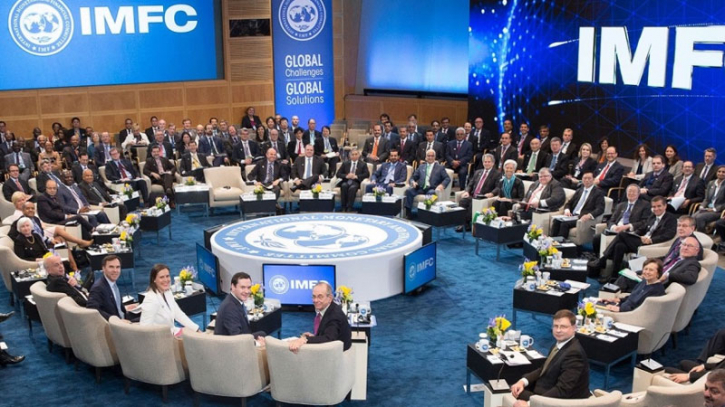IMF board to approve $1.1bn for Pakistan on 29th

The Executive Board of the International Monetary Fund (IMF) will meet within a week to finalise its last review of Pakistan’s $3 billion Stand-By Arrangement (SBA).
“According to the IMF’s event calendar, the review meeting is set for 10:00am on April 29,” a diplomatic source informed Pakistani media Dawn.
Earlier this week, the Fund published a schedule of the Executive Board’s meetings on its website, which indicated Nigeria as the country whose programme would be reviewed on April 29. The subsequent meeting on May 1 will review IMF programmes with Kiribati and Montenegro, with Pakistan notably absent from the list.
Previous statements from both the IMF and Pakistani officials indicated that not only would the board convene on April 29, but it would also approve the release of the final tranche of $1.1 billion under the SBA signed in June 2023.
The absence of this meeting from the IMF’s public calendar has sparked speculation in Pakistan, suggesting that the country may have been excluded from the board’s agenda. Some have even speculated that Pakistan might need to renegotiate the release of the final tranche.
“These are baseless speculations,” said a former World Bank official. “The IMF doesn’t operate in this manner. If there’s a decision to delay a programme, it would be done openly, not clandestinely.”
He explained that while a meeting might be delayed due to scheduling complications, this typically has no impact on a programme after a Staff-Level Agreement (SLA).
In March, IMF staff and Pakistani authorities reached an SLA for the second and final review, which was subsequently forwarded to the board for final approval. Upon approval, Pakistan would have access to SDR 828 million (approximately $1.1bn).
Meanwhile, in an interview with the US news magazine, The National, Finance Minister Muhammad Aurangzeb stated that Pakistan is on track to secure a new loan from the IMF, adding that the money lender had been “very receptive in terms of agreeing to consider a larger, longer programme”.
In the interview published on Monday, Aurangzeb said that macroeconomic indicators were shifting in Pakistan’s favour. “He also sounded optimistic that Pakistan’s currency has finally stabilised and said rampant inflation is on track to drop to single-digit levels by the end of next year,” The National said.
The National noted that Pakistan was seeking a $6bn IMF loan, but Aurangzeb said the figure was more of a “guesstimate.” The loan’s final details will be determined when an IMF mission visits Islamabad next month.
In the interview, the finance minister also talked about China and the China-Pakistan Economic Corridor (CPEC), stating that Pakistan had “missed a trick” by taking too long to monetise projects, including through boosting exports to special economic zones.
“We have been slow over the last few years,” he said. “We are going to move forward with phase two so that we can get going with the revenue-generating part of the CPEC,” he said.
He also underscored the importance of remittances to Pakistan’s economy. He said that payments from overseas were on the rise and were expected to rise to about $29bn this fiscal year.
.png)




